Above the Law: Who Can Stop the Lins from Running Amok at Tatung?
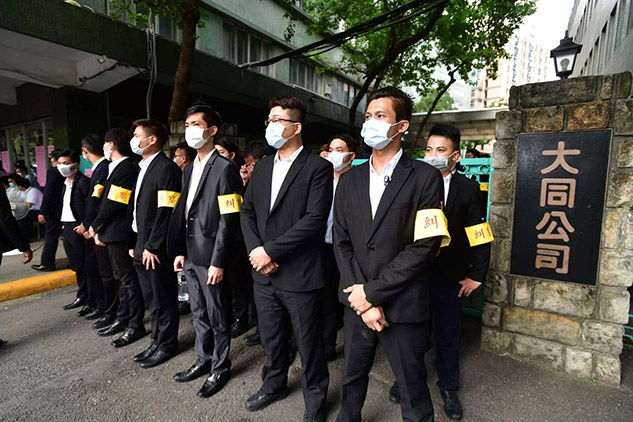
Source:Kuo-Tai Liu
The winner for the most controversial shareholders’ meeting of 2020 goes to Tatung Co. (大同), the Taiwanese appliance brand famous for its rice cookers. During the reelection of its board of directors, Tatung moved to deprive certain investors of their voting rights, despite the lack of any legal basis. How do foreign investors see this blatant breach of corporate governance norms?
Views
Above the Law: Who Can Stop the Lins from Running Amok at Tatung?
By Chuo-han Yangweb only
The gates of Tatung were crowded with investors on the morning of June 30th. Some of them had camped there all night. This was the big day. It was Tatung’s annual shareholders’ meeting, and the first chance to re-elect its board of directors in three years.
No one could have known they were about to witness the most ridiculous shareholders’ meeting in the company’s history. No one knew that, despite sleeping on the streets overnight, they were already too late.
Huang Kuo-chang, nominee for independent director and an advocate for the “market faction”, found himself surrounded by reporters. Before going in, he flashed a confident smile and showed off the tally of electronic votes. He had won 1.87 billion shareholder votes—8.9% of the total votes. Holding one share grants a person nine votes. Even the chairwoman and president of Tatung, Lin Kuo Wen-yen (林郭文豔), had only ten million shareholder votes—0.06% of the total number.
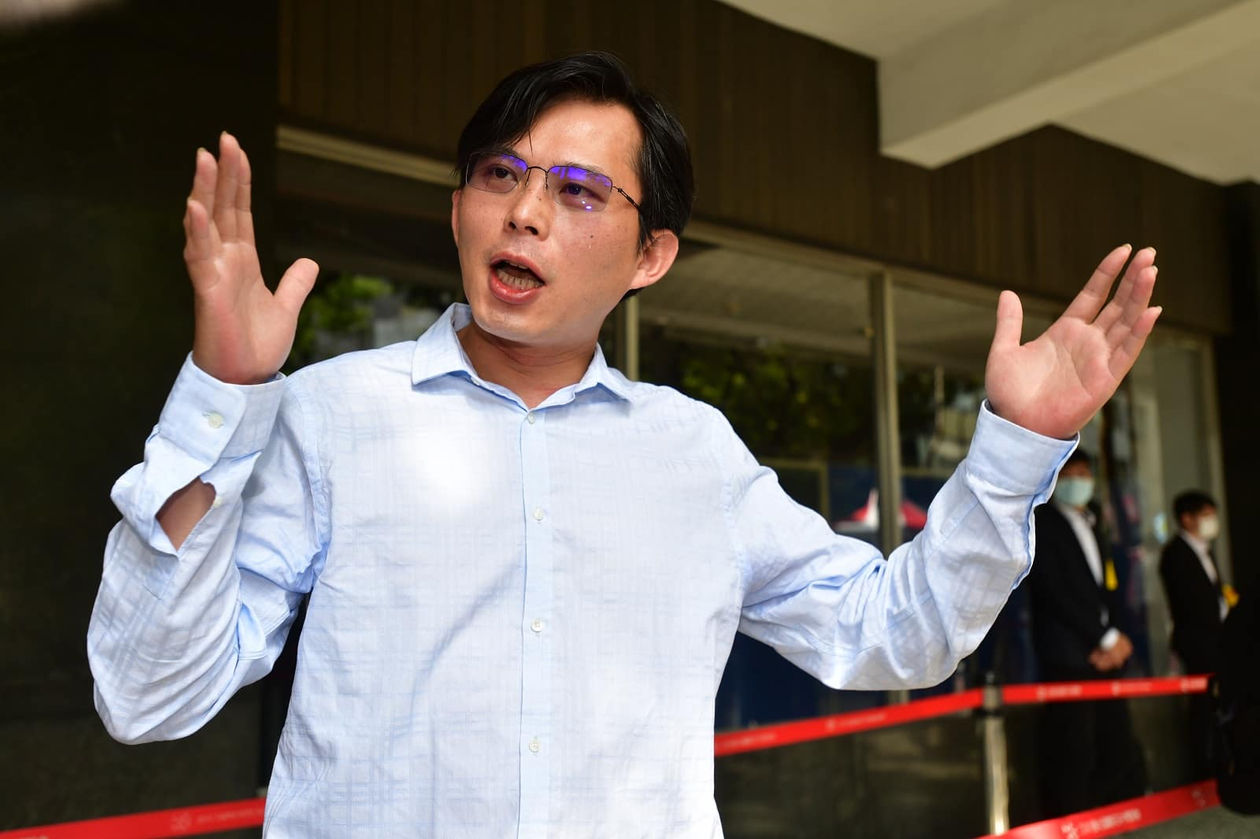
Another nominee for the board and fellow advocate representing the market faction was Lin Hung-hsin (林宏信), chair of Hsin Tung Co. (欣同). He won 1.8 billion electronic votes. Of the eighteen candidates, he was second only to Huang. But at the gates of the empire, he was denied entry by masked men in black, who were hired by Tatung to “keep order”. No one would say why he could not go in. Lin left in a huff.
The cavalcade of outlandish behavior continued. At nine, the shareholders’ meeting began.
Tatung announced their claim that certain investors were “backed by Chinese capital” and had contravened the Business Mergers and Acquisitions Act (企業併購法). As such, 27 shareholders were denied voting rights, effective immediately.
Besides the three market faction investment companies Luo De, San Ya, and Jin Dian (羅得, 三雅, 競殿), eight foreign investment banks and securities investment accounts, including Citibank, HSBC, the Bank of Singapore, and Grand Fortune Securities (福邦證券) were included in this charge. In total, more than 1.2 billion shares were accused of having ties to Chinese money. Due to this, Tatung claimed that they were “legally blocked from exercising their right to vote”.
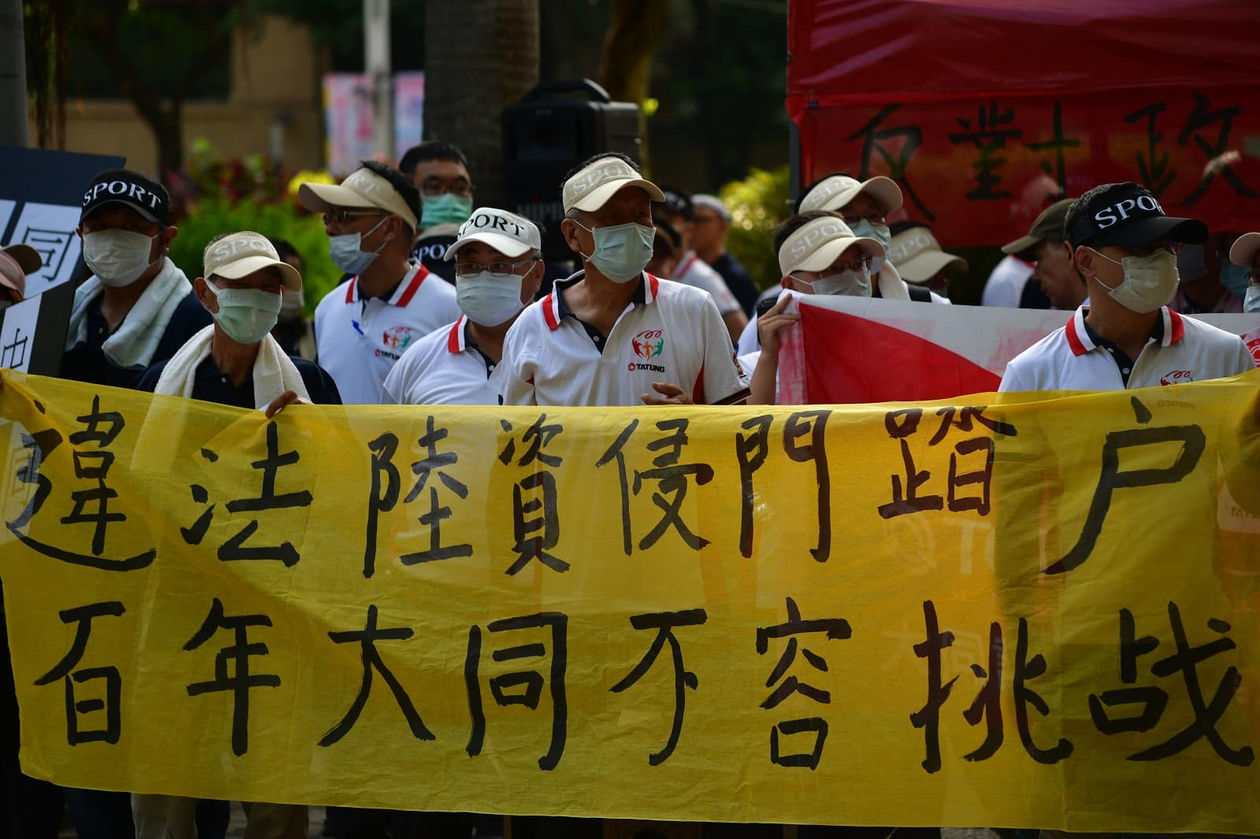
Originally, 2.3 billion shares enjoyed the right to vote. In one fell swoop, Tatung cut the count by more than half. Many of the expelled votes had been for Huang. Because of this, although the total number of shareholder votes passed the legal threshold, only 0.99 billion shares actually exercised their right to vote.
More than Half of the Shares were Disenfranchised, While the SFIPC was ‘Muted’
No one could put a stop to the outrage.
The Securities and Futures Investors Protection Center (證券投資人及期貨交易人保護中心; SFIPC) was established to “protect investors’ rights and advance the healthy development of the securities market”. Six representatives were sent to monitor the proceedings. All six were denied entry by the men in black. They were so far from where the action took place, they could not even see the podium.
The SFIPC’s initial statement read: “Companies are not to strip shareholders of voting rights at will and without reason. This is a serious breach of shareholders’ rights, and the company must rectify its conduct.” Tatung Chairwoman Lin Kuo declined to respond. The voting continued. The second time the SFIPC voiced their objections, their microphone was muted.
By 1:30 p.m., the nine board members nominated by the company had all been “elected”, including Lin Kuo herself, who “won” with the fourth-highest number of votes.
TWSE: Tatung Failed to Provide Sufficient Reasons
Tatung is a business; it is neither the court nor an administrative body. Does it have the right to disenfranchise its shareholders? On the evening of the fiasco, the Taiwan Stock Exchange (TWSE) requested that representatives of Tatung convene at the TWSE to provide reasons and evidence for why it unilaterally stripped shareholders of voting rights at the shareholders’ meeting.
At the TWSE meeting, Tatung's attorney Lai Chung-chiang (賴中強) declared they had sufficient reasons to strip certain shareholders of their voting rights. He stated that the disagreement between Tatung and its shareholders must be settled in court.
“Can the authorities intervene? They can,” Lai repeated this point twice. “But they must have a legal basis for doing so.”
“Brazen and reckless! They are holding corporate governance in contempt!” Tsai Kun-chou (蔡昆洲), Leading Partner at Enlighten Law Group (尚澄法律事務所), says bluntly.
“In effect, they are treating a publicly listed company like it’s their family asset.”
“This is market manipulation at its worst,” says a legal scholar who was a key participant in the amendment of Taiwan’s Company Act (公司法). “The right to vote is a shareholder’s most fundamental right. Unless there is a conflict of interest as defined by the Company Act, or unless it’s special shares that were not endowed with voting rights, then it is the most natural thing in the world for shareholders to be allowed to vote.”
“Tatung and its lawyers know exactly what they are doing. By Taiwan’s laws, a court battle can take two to three years. Which is to say, by the time the legal battle ends, it will be time to reelect the members again.” A senior partner at an international law firm says, “If this precedent goes unchallenged, all the public companies in Taiwan could use this trick to maintain an iron grip on operations.”
What if Every Public Company Behaved Like Tatung?
Tatung’s lawyers must have known only the Financial Supervisory Commission (金管會; FSC) and the Investment Commission (投審會) have the right to decide what is or is not Chinese capital. A company does not have the legal authority to apply such labels. But Tatung went ahead with its gamble anyway.
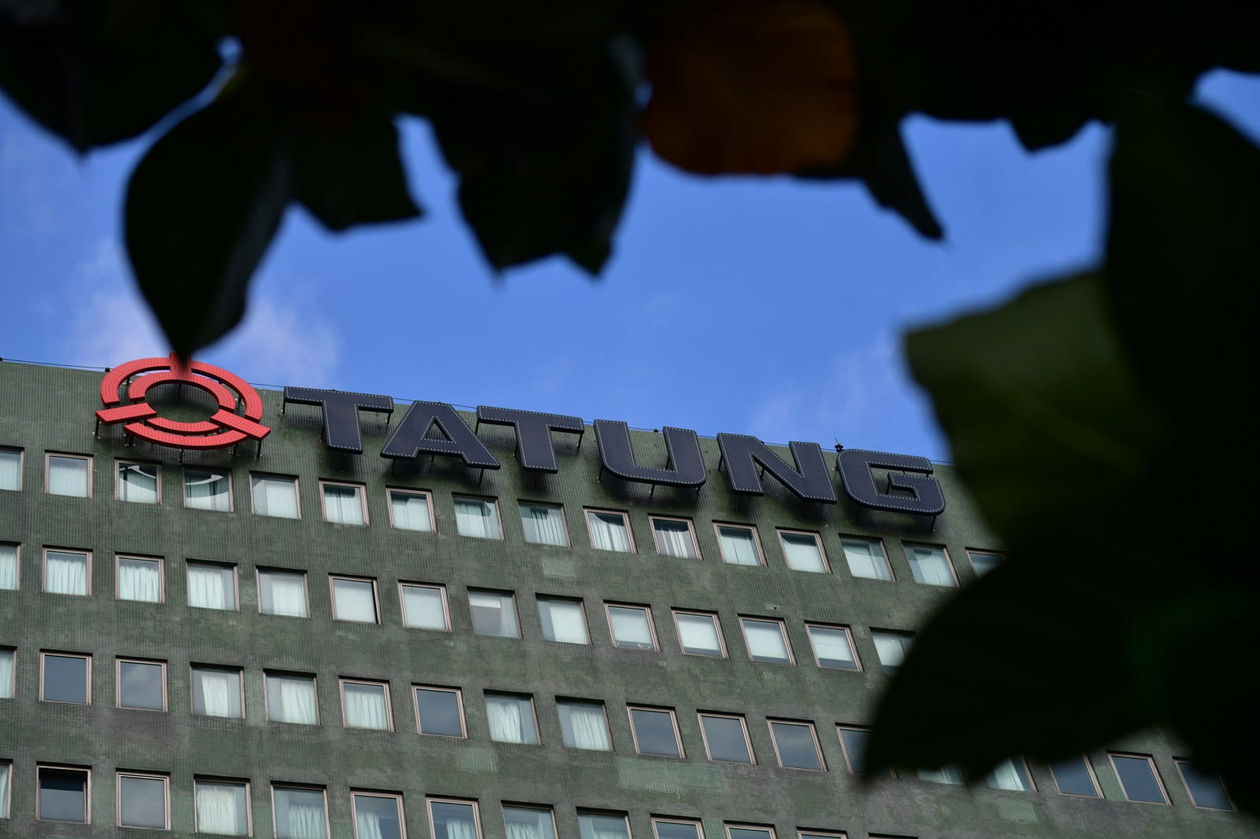
The last time Tatung re-elected its board of directors, the founding Lin family also made a mockery of rules and ethics. After two and a half years, the courts ruled that Tatung broke the law. But not a single Tatung lawyer was ever punished for giving the wrong legal advice.
Instead, Tatung reinstated its “audacious” lawyers like J. S. Chen (陳錦旋). True to form, they’ve engaged in controversial and highly questionable conduct once again.
“Lin Kuo’s survival is on the line. She doesn’t care about her reputation; everything is on the table so long as it works,” says a legal expert familiar with the inner workings of Tatung.
Foreign Investors Lack Faith in Either Lin Kuo or the “Market Faction”
For now, Lin Kuo has maintained her grip on Tatung by making a mockery of the law. But her problems will only continue to pile up. Not only does she have the market faction to contend with, the proxy advisory firm Institutional Shareholder Services (ISS) has also released a report that lays bare all the questions about her qualifications.
The ISS is one of the most trusted corporate governance and evaluation platforms in the world. It offers advice on how to vote in public companies’ shareholders’ meetings. The ISS is usually a good indicator of how foreign investors are feeling about a particular vote.
This time, the ISS was very straightforward in its assessment: A board of directors with Lin Kuo at its head is bound to have structural problems.
Regarding former Chairman Lin Wei-shan (林蔚山) and his wife, the current Chairwoman Lin Kuo Wen-yen, the ISS states: “The board of directors’ current structure seems to lack checks and balances. There is nothing to prevent them (the Lins) from incurring losses, damaging the company’s reputation, and other risks. Because of this, the practice of having the same person assume the roles of chairperson and president does not resolve the issue of corporate governance, nor does it protect the rights of the company and its shareholders.”
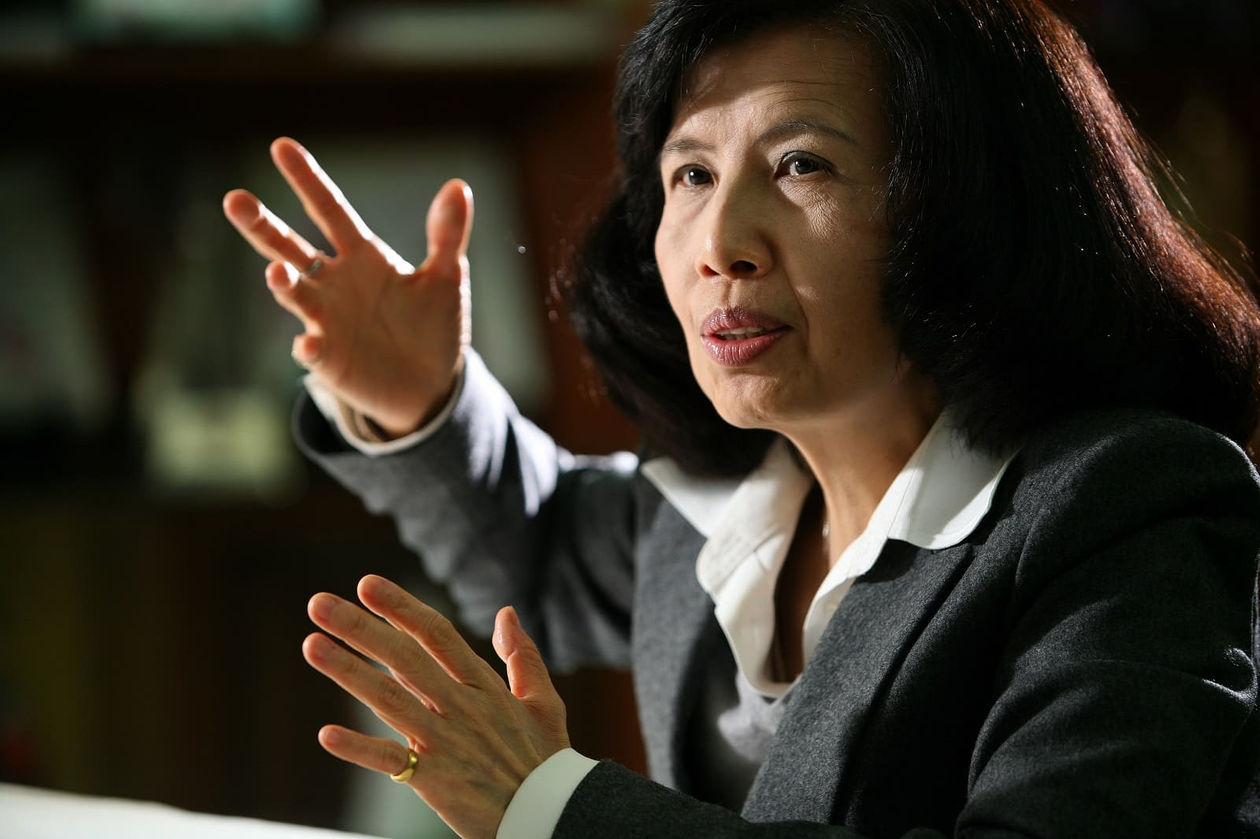
What’s more, since Lin Kuo is suspected of violating the Securities Exchange Act (證交法) and withholding vital information, she has been questioned by the Taipei District Prosecutors Office (台北地檢署). She was released on bail of five million Taiwan dollars and prohibited from leaving the country.
The ISS states, “Even though the current board of directors has thrown its full weight behind Lin Kuo, the ongoing investigation will interfere with her duties as chairwoman. Therefore, Lin Kuo’s reelection lacks legitimacy.” Because of this, the ISS is against her reelection.
On the flip side, the market faction has also failed to come up with a response. Likewise, the ISS is against the candidates nominated by the market faction, including Huang Kuo-chang and Lin Hung-hsin.
The ISS points out many of the market faction’s nominees come from a background in construction, which is unrelated to Tatung’s core business. The ISS states that Tatung mainly works in heavy machinery, electronics, green energy, and consumer products. The aforementioned items make up eighty percent of Tatung’s revenue, whereas land development contributes to only ten percent.
“It makes no sense to put inexperienced persons on the board,” states the ISS. “At the same time, though candidates nominated by outside shareholders raise questions about the company’s financial health, they’ve yet to propose constructive criticism or actionable items.”
While Lin Kuo fights tooth and nail to maintain control of the company, Tatung is hemorrhaging money.
Tatung Under the Lins Suffers Losses in Half of its Investments
If we don’t consider the profits netted by Tatung subsidiary Shan-Chih Asset Development Co. (尚志資產開發), Tatung’s investments incurred a loss of NT$340 million during the first quarter of this year. If we take the group as a whole, even though real estate development only contributed to thirty percent of the revenue in the first quarter, it brought in most of the profit. Even Tatung’s famous appliances, such as its renowned rice cooker, suffered a net loss in the first quarter, despite making up thirty percent of the revenue.
“Tatung’s situation is so sad,” says an industry professional who has worked with Tatung for a long time. Lin Kuo’s style is micromanaging, leaving no room for professionalism.
The fight over the reelection of the board has brought the ailing company back to square one. As the lawsuits continue, no one has any idea how to change things for the better. Tatung was once the nation’s pride and joy. It was the corporation that told everyone to “buy Taiwanese”. Now, it is a stain on the country’s image.
Have you read?
♦ Olivia Wu Takes Over Shin Kong’s Financial Holding Empire
♦ How Douglas Hsu Commands 10 Business Divisions and 200 Companies
♦ Taiwan Top 50 Business Groups: 20 Years Later, Who’s In and Who’s Out?
Translated by Jack Chou
Edited by TC Lin
Uploaded by Judy Lu






